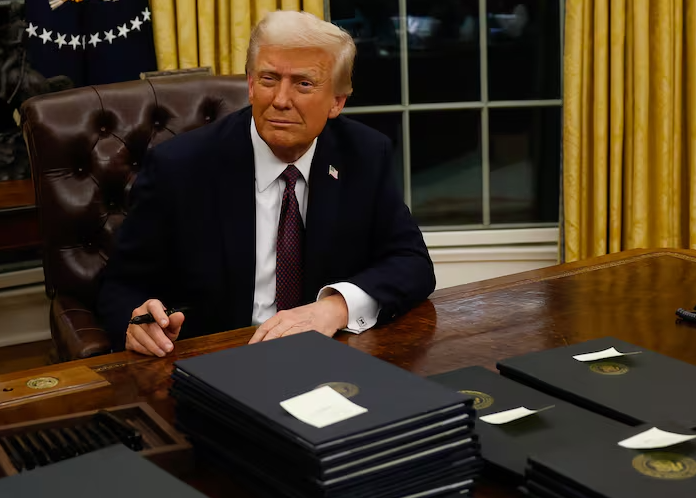In the ever-evolving landscape of American immigration policy, President Trump’s executive order regarding birthright citizenship has stirred up significant debate and concern. If enacted, this order could have considerable implications for families and communities in Florida, a state known for its diverse population and vibrant immigrant communities. Here’s a breakdown of what this executive order entails and what it could mean for the Sunshine State.
Understanding Birthright Citizenship
Birthright citizenship, enshrined in the 14th Amendment of the U.S. Constitution, grants citizenship to anyone born on U.S. soil, regardless of their parents’ immigration status. This law has been a topic of discussion for decades, particularly as the nation grapples with immigration reform. President Trump has expressed his desire to end birthright citizenship through an executive order, which he claims is necessary to “fix” what he views as an issue of illegal immigration.
Potential Impacts of the Executive Order
- Changes to Birth Registration:
If Trump’s executive order successfully alters birthright citizenship, newborns in Florida could face a new legal landscape. This might lead to complications in birth registration for children born to undocumented parents, potentially creating a divide in access to healthcare, education, and social services for these families. - Increased Anxiety Among Immigrant Families:
Florida has one of the largest immigrant populations in the United States. Many families could feel heightened anxiety and uncertainty about their children’s status at birth. This climate of fear could discourage families from seeking necessary medical care during pregnancy or childbirth, leading to health risks for both mothers and infants. - Economic Consequences:
The impact of reducing birthright citizenship could extend to Florida’s economy. Children born in the U.S. often contribute to the local economy as they grow up and enter the workforce. If fewer children receive citizenship, there may be longer-term impacts on the workforce and the state’s economic growth. An influential immigrant population contributes significantly to Florida’s diverse economy, particularly in tourism, agriculture, and service sectors. - Legal Challenges:
Trump’s executive order is likely to face numerous legal challenges. Many experts argue that an executive order cannot unilaterally change constitutional law. Florida, home to a number of legal advocacy organizations, may see grassroots movements rising in response to the executive order to protect birthright citizenship for all children born in the state. - Political Repercussions:
Florida is a pivotal state in national elections, and immigration policy plays a critical role in shaping voter opinions. This executive order could influence political discourse, mobilizing voter bases on both sides of the immigration debate. Candidates may need to clarify their stances on birthright citizenship, impacting their electoral strategies and outreach efforts.
Conclusion
Trump’s executive order on birthright citizenship has the potential to significantly affect Florida’s immigrant communities, families, and the state’s economy. As discussions around immigration continue to evolve, it is critical for residents to remain informed and engaged in the conversation. The outcomes of this order may challenge the very fabric of diversity that Florida prides itself on, highlighting the need for advocacy and awareness to protect the rights of all residents.
In these uncertain times, it is essential for communities to come together, share information, and support one another. The future of birthright citizenship may be in flux, but the voices of Florida’s residents will play a crucial role in shaping the path forward. What are your thoughts on the potential impacts of this executive order? Share your comments below!


Leave a Reply